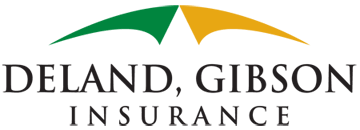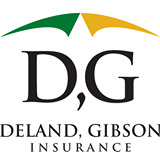Health insurance is a crucial component of financial planning, offering individuals and employers a way to mitigate the costs associated with medical care. Within health insurance, there are many strategies for setting up a health plan. The strategies we are comparing range from the most aggressive to the most conservative. While both provide top-notch healthcare, we will discuss the behind-the-scenes financing of these plans.
The two primary options for this discussion are self-funded with stop loss and fully insured plans. Both options have advantages and disadvantages that are crucial to understand before making a decision.
Deland, Gibson offers expert guidance and tools to help you navigate between self-funded and fully insured health insurance plans, ensuring a tailored solution that meets your specific needs.
Fully Insured Health Insurance
Fully insured health insurance refers to a type of health coverage arrangement in which an individual or entity, typically an employer, pays premiums to an insurance company in exchange for health care coverage. In this arrangement, the insurance company assumes the financial risk associated with providing healthcare benefits to the insured individuals.
Advantages of Fully Insured Plans:
- Predictable Costs – With fixed premiums, the policyholder knows in advance the amount they need to budget for healthcare coverage.
- Risk Transfer – The policyholder is shielded from the financial impact of unexpected or high claims, as the insurer is responsible for paying covered medical expenses.
- Simplicity – Fully insured plans typically come with a simplified administrative process, as the insurance company takes on responsibilities such as claims processing, customer service, and regulatory compliance.
While fully insured health insurance offers these benefits, it’s essential to recognize that premiums paid to insurers are typically higher than the actual cost of healthcare services. Insurers include administrative costs, profit margins, and risk assumptions when setting premiums. Additionally, fully insured plans may have less flexibility in plan design compared to self-funded alternatives.
Understanding Self-Funded with Stop Loss Insurance
Self-funded health insurance, or self-insurance, is an alternative approach to providing healthcare coverage for employees. In a self-funded health insurance arrangement, the employer is responsible for covering its employees’ healthcare expenses rather than purchasing a traditional, fully insured health insurance policy from an insurance company.
Stop Loss Insurance
Self-funded plans include stop loss insurance, which protects self-insured organizations from catastrophic medical expenses.
For example, if a business has a stop loss deductible level of $10,000, they will need to pay the first $10,000 of eligible medical expenses. Once they reach this threshold, the stop-loss insurance would begin covering a significant portion, if not all, of the remaining eligible expenses, up to the policy’s maximum limit.
The combination of self-funding with stop loss insurance enables employers to have more control over their healthcare costs, customize benefit plans, and potentially save money in periods of lower-than-expected claims. Keep in mind that the specific terms and conditions of stop loss insurance can vary, so it’s important to refer to the specific policy documents for accurate information.
Advantages of Self-Funded with Stop Loss plans:
- Cost Savings – In a self-funded plan, employers pay for the actual healthcare expenses of their employees rather than fixed premiums to an insurance company, which can lead to cost savings during periods of low claims or favorable health trends among employees.
- Customization – Employers have the flexibility to customize their healthcare plans according to the specific needs of their workforce, which allows for tailored benefits and coverage options and enhances the effectiveness of the healthcare benefits offered. For example, you can utilize a Pharmacy Benefit Manager (PBM) to secure lower pricing on RX.
- Transparency – Self-funded plans can provide employers with more detailed claims data and greater transparency into healthcare utilization patterns, which allows employers to analyze trends, identify high-cost areas, and make informed decisions about benefit design and cost-containment strategies.
It’s important to note that while self-funded health insurance offers these benefits, it also comes with potential risks, particularly the financial exposure associated with high or unexpected healthcare claims. Employers considering self-funding should carefully assess their risk tolerance, financial stability, and the healthcare needs of their workforce before making this decision.
How Deland, Gibson Can Help:
Deland, Gibson is equipped to assist employers in assessing their specific needs, risk tolerance, and budget constraints when choosing between fully insured and self-funded health insurance options. Using our actuary-based tools, we can provide a detailed understanding of the precise cost of each option for your business.
Below are specific tools Deland, Gibson offers to establish the most suitable solution for you:
- Look Both Ways ASO Analysis: Provides a fully insured client with a view of their medical costs if they were self-funded. The tool can project costs looking back 2 years and forecast costs looking ahead 2 years.
- ISL Deductible Selection and Lookback Tool: Provides clients/prospects with a sound recommendation on the appropriate Individual Stop Loss (ISL) deductible level. This tool can be used for an employer, whether they are currently fully insured or self-funded.
- Employee Contribution Planning Tool: Quickly models out several potential employee contribution scenarios.
- Fully Insured Premium Optimizer: Provides a fully insured client with a view of other options along the funding spectrum when the client isn’t ready to move to self-funding. While some clients can only be in a prospective (non-dividend eligible or pooled) insured contract, others may have options to participate or share in a surplus in years when their claims are better than expected.
If you are an employer offering a health insurance program, reach out to Deland, Gibson today to evaluate your unique requirements and determine the most suitable solution for your organization.
Providing Peace of Mind Through Proactive Service
Deland, Gibson: A Trusted Choice, Five Star Accredited independent insurance agency. Established in Massachusetts in 1900, Deland, Gibson is a 4th generation family-run insurance agency that has thrived working as a trusted advisor for its client base. We work with individuals and businesses to lower their Total Cost of Risk. We analyze a client’s direct and indirect costs and implement risk reduction plans to address areas of business, hazard, or strategic risk.


